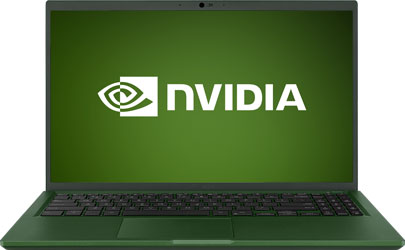Report an Error
NVIDIA Quadro T1200 Max-Q
- Graphics Processor
- TU117
- Cores
- 1024
- TMUs
- 64
- ROPs
- 32
- Memory Size
- 4 GB
- Memory Type
- GDDR6
- Bus Width
- 128 bit
Recommended Gaming Resolutions:
- 1920x1080
- 2560x1440
- 3840x2160
The Quadro T1200 Max-Q is a professional mobile graphics chip by NVIDIA, launched on April 12th, 2021. Built on the 12 nm process, and based on the TU117 graphics processor, the chip supports DirectX 12. The TU117 graphics processor is an average sized chip with a die area of 200 mm² and 4,700 million transistors. It features 1024 shading units, 64 texture mapping units, and 32 ROPs. NVIDIA has paired 4 GB GDDR6 memory with the Quadro T1200 Max-Q, which are connected using a 128-bit memory interface. The GPU is operating at a frequency of 855 MHz, which can be boosted up to 1425 MHz, memory is running at 1250 MHz (10 Gbps effective).
Its power draw is rated at 18 W maximum. This device has no display connectivity, as it is not designed to have monitors connected to it. Rather it is intended for use in laptop/notebooks and will use the output of the host mobile device. Quadro T1200 Max-Q is connected to the rest of the system using a PCI-Express 3.0 x16 interface.
Its power draw is rated at 18 W maximum. This device has no display connectivity, as it is not designed to have monitors connected to it. Rather it is intended for use in laptop/notebooks and will use the output of the host mobile device. Quadro T1200 Max-Q is connected to the rest of the system using a PCI-Express 3.0 x16 interface.
Graphics Processor
Mobile Graphics
- Release Date
- Apr 12th, 2021
- Generation
-
Quadro Turing-M
(Tx000)
- Predecessor
- Quadro Pascal-M
- Successor
- Quadro Ampere-M
- Production
- Active
- Bus Interface
- PCIe 3.0 x16
Relative Performance
Based on TPU review data: "Performance Summary" at 1920x1080, 4K for 2080 Ti and faster.
Performance estimated based on architecture, shader count and clocks.
Clock Speeds
- Base Clock
- 855 MHz
- Boost Clock
- 1425 MHz
- Memory Clock
-
1250 MHz
10 Gbps effective
Memory
- Memory Size
- 4 GB
- Memory Type
- GDDR6
- Memory Bus
- 128 bit
- Bandwidth
- 160.0 GB/s
Render Config
- Shading Units
- 1024
- TMUs
- 64
- ROPs
- 32
- SM Count
- 16
- L1 Cache
- 64 KB (per SM)
- L2 Cache
- 1024 KB
Theoretical Performance
- Pixel Rate
- 45.60 GPixel/s
- Texture Rate
- 91.20 GTexel/s
- FP16 (half)
- 5.837 TFLOPS (2:1)
- FP32 (float)
- 2.918 TFLOPS
- FP64 (double)
- 91.20 GFLOPS (1:32)
Board Design
- Slot Width
- IGP
- TDP
- 18 W
- Outputs
- Portable Device Dependent
- Power Connectors
- None
- Board Number
- E3906 SKU 10
Graphics Features
- DirectX
- 12 (12_1)
- OpenGL
- 4.6
- OpenCL
- 3.0
- Vulkan
- 1.3
- CUDA
- 7.5
- Shader Model
- 6.7
TU117 GPU Notes
| NVENC: 5th Gen NVDEC: 4th Gen PureVideo HD: VP10 VDPAU: Feature Set J |
Devices based on this design (1)
| Name | GPU Clock | Boost Clock | Memory Clock | Other Changes |
|---|---|---|---|---|
| 1200 MHz | 1560 MHz | 1250 MHz |
May 16th, 2024 14:39 EDT
change timezone
Latest GPU Drivers
New Forum Posts
- 20 Years? (30)
- NVcleanstall error (6)
- DMAS Design [SPDIF-Optical] (78)
- Prochot 95c turning red even though temperatures are not even close at around 50-65C? (2)
- How to install nvidia driver for rtx3080 on windows 1709? (68)
- Free Games Thread (3812)
- Would you pay more for hardware with AI capabilities? (26)
- LOL ASUS says this is $200 in repair, Steve from gamers Nexus smokes ASUS, Steam Deck til I die boys!!!! (83)
- Post your 7zip 23.01 scores (18)
- 24-pin connector won’t snap onto motherboard (7)
Popular Reviews
- Homeworld 3 Performance Benchmark Review - 35 GPUs Tested
- Enermax REVOLUTION D.F. X 1200 W Review
- Lofree Edge Ultra-Low Profile Wireless Mechanical Keyboard Review
- Upcoming Hardware Launches 2023 (Updated Feb 2024)
- ZMF Caldera Closed Planar Magnetic Headphones Review
- Silverstone Shark Force 120 mm Fan Review
- AMD Ryzen 7 7800X3D Review - The Best Gaming CPU
- Corsair MP700 Pro SE 4 TB Review
- ASUS Radeon RX 7900 GRE TUF OC Review
- Sapphire Radeon RX 7900 GRE Pulse Review
Controversial News Posts
- Intel Statement on Stability Issues: "Motherboard Makers to Blame" (267)
- AMD to Redesign Ray Tracing Hardware on RDNA 4 (227)
- Windows 11 Now Officially Adware as Microsoft Embeds Ads in the Start Menu (172)
- NVIDIA to Only Launch the Flagship GeForce RTX 5090 in 2024, Rest of the Series in 2025 (152)
- AMD Hits Highest-Ever x86 CPU Market Share in Q1 2024 Across Desktop and Server (137)
- AMD RDNA 5 a "Clean Sheet" Graphics Architecture, RDNA 4 Merely Corrects a Bug Over RDNA 3 (128)
- AMD's RDNA 4 GPUs Could Stick with 18 Gbps GDDR6 Memory (114)
- AMD Ryzen 9 7900X3D Now at a Mouth-watering $329 (104)

